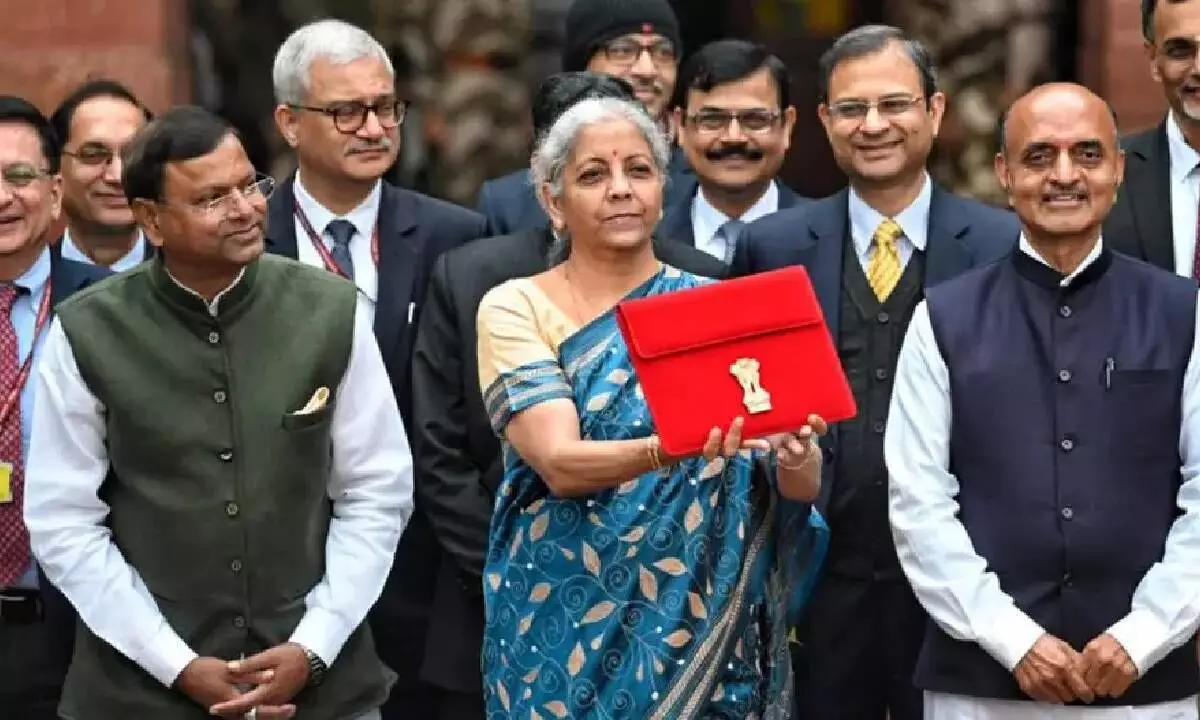Interim Budget 2024: Strong economic fundamentals make it easier for FM to go for growth
Finance Minister Nirmala Sitharaman’s Interim Budget 2024 to be presented in Parliament at 11 am today is expected to continue with the government’s big ticket expenditure on infrastructure projects and focus on agriculture and schemes for the rural poor while maintaining the path of fiscal consolidation
image for illustrative purpose

New Delhi, Feb 1: Finance Minister Nirmala Sitharaman’s Interim Budget 2024 to be presented in Parliament at 11 am today is expected to continue with the government’s big ticket expenditure on infrastructure projects and focus on agriculture and schemes for the rural poor while maintaining the path of fiscal consolidation.
The over 7 per cent growth momentum in the economy has resulted in buoyancy in tax collections that gives the Finance Minister sufficient headroom to keep the fiscal deficit in check and push economic growth with stability.
Over the past nine years, India's economy has grown impressively due to series of accelerated structural reforms.
“India has emerged as a star performer” and is projected to contribute more than 16 per cent of the global growth, due to economic reforms in key sectors like digitisation and infrastructure,” according to the IMF.
India’s real GDP has clocked a growth of 7.7 per cent in the H1 2023-24 (April-Sept 2023), which is highest amongst the major economies. The country’s National Statistical Office is projecting India’s real GDP growth in 2023-24 as 7.3 per cent.
The International Monetary Fund (IMF) has raised its growth forecast for India's economy in FY 24 to 6.7 per cent, an increase from the earlier projection of 6.3 per cent.
By contrast, OECD’s Economic Outlook projects real gross domestic product (GDP) growth for most Advanced Economies to be in a 0.7-1.7 per cent range for 2024, and for emerging economies to be around 4 per cent.
The decline in inflation has added to economic stability. In December 2023, retail inflation, as indicated by the Consumer Price Index (CPI), was recorded at 5.7 per cent, staying beneath the RBI's upper limit. Additionally, the core component of inflation reached its lowest level in 48 months, standing at 3.89 per cent.
India’s stock market has overtaken Hong Kong’s to rank as 4th biggest equity market globally for the first time.
The robustness of India’s economic fundamentals has been accompanied by strides made in human development.
According to Niti Aayog, nearly 25 crore Indians escaped Multidimensional Poverty in the last 9 years; and there has been a steep decline in Poverty Headcount Ratio from 29.17 per cent in 2013-14 to 11.28% in 2022-23
High Frequency Indicators
On the back of the robust growth in the July-September 2023 quarter, High-Frequency Indicators indicate that the domestic economy continues to remain resilient and buoyant:
UPI transactions in December 2023 scaled a fresh peak, clocking Rs 18.23 trillion in value (42 per cent YoY) and 12.02 billion in volume (54 per cent YoY).
India’s manufacturing PMI was 54.9 in December 2023, having been expansionary for 30 consecutive months.
India’s Services PMI reached a 3-month high of 59 in December, having been expansionary for 29 consecutive months.
Public Sector Banks have earned record profits of over Rs. 1 lakh crore in the last financial year (FY 2022-23).
Banking sector
Gross NPAs and Net NPAs are at decadal lows.
Banks are handing over record dividend cheques to the Government, and those funds are being used for ‘Garib Kalyan’.
From being deeply troubled, SBI become the ‘Most Profitable’ company in India as per the recently quarterly results. In Q1 (April-June) FY 2023-24, SBI earned Rs 18,537 crores as profits.

